Support strong Canadian climate journalism for 2025
The Trudeau government will chart the next segment of its mandate this week in what's expected to be a modest budget — but the omnipresent economic unknowns in the U.S. could eventually force Ottawa from a steady-as-she-goes course.
For now, the stronger U.S. economy is benefiting Canada. Finance Minister Bill Morneau will present the country's budget Wednesday amid a brightening outlook, thanks in large part to the United States.
In recent months, healthier Canadian numbers — from trade, to labour, to housing — have encouraged forecasters to raise their projections for economic growth.
Some believe these improvements will put Ottawa on a path toward smaller annual deficits than what the government had predicted last fall. After a surprisingly robust finish to 2016, Ottawa's anticipated $25.1-billion shortfall for 2016-17 is widely expected to come in less than projected.
In normal times, the modest momentum would provide a dose of optimism for a government drawing up its budget.
But Canada's current economic climate is far from typical.
The November election win for U.S. President Donald Trump has led to significant uncertainty in what is by far Canada's top trading partner.
Even with the recent economic improvements, there are widespread concerns in Canada about U.S. proposals, including discussion about major changes to trade and tax policies.
Many warn the changes, which could include a border adjustment tax, could have severe economic consequences on this side of the border.
For now, with so many unknowns, sources have said Ottawa has no plans to take steps in the budget to directly address the Trump-related economic fears.
It remains to be seen whether Ottawa will have the flexibility to respond to any changes implemented in the U.S. over the course of the year.
"The government is building this year's budget with not a great deal of clarity about the geopolitical risks that could impact the Canadian economy," said Craig Alexander, chief economist for the Conference Board of Canada.
"And so, they might want to be sensitive to that and they might want to delay some of the measures they were thinking about until they actually have greater clarity about what's happening south of the border."
Indeed, major spending decisions on defence and international aid seem to have been deferred to later this year.
Even before any concrete economic moves by Trump, the U.S. resurgence has had negative effects in Canada.
A research note by TD last week said U.S. rate increases have already started to push up Canadian mortgage rates, creating "significant risk" in an economy with high household debt and soaring real estate prices.
Higher U.S. interest rates since Trump's victory could also lead to bigger debt payments for Ottawa in the future, though some economists believe the effects will be offset by the benefits for Canada from a growing American economy.
At the same time, Ottawa faces tight fiscal constraints and it's expected to deliver a slim budget with few big-ticket items.
The Liberals have already committed to major spending increases for investments over the coming years in areas like infrastructure and expanded child benefits, which they argue will help lift the economy over the long haul.
The Trudeau government's outlook is predicting several years of double-digit deficits.
The Liberals abandoned their election pledge to run annual shortfalls of no more than $10 billion over their mandate and to balance the books in four years.
Instead, Morneau has pledged to reduce the debt-to-GDP ratio — also known as the debt burden — below its current level by 2019-20.
But sticking with the vow on the debt-to-GDP ratio means Morneau has very little "wiggle room" when it comes to new spending, says Randall Bartlett, chief economist at a University of Ottawa think tank.
He believes the government should do more to analyze the performance of these investments to ensure Canadians are getting bang for their buck.
"The question is, are we just basically spending money like drunken sailors?" said Bartlett, whose Institute of Fiscal Studies and Democracy is directed by former parliamentary budget officer Kevin Page.
But without accounting for U.S. policy changes — since they remain unknowns — Bartlett believes the stronger economy has put Ottawa on track to shave a few billion dollars off each of its projected deficits from 2016-17 to 2018-19.
Questions have been raised by Morneau's decision to base his upcoming budget's projections on forecasts he received from private-sector economists in mid-January.
The Finance Department traditionally uses a survey of private-sector forecasters to determine its baseline projections, but those numbers are usually delivered only a few weeks prior to the budget.
Bartlett believes the economy has improved so much since January that the government will have a needlessly pessimistic forecast underlying the budget numbers — which would make it easier for Ottawa to beat these lower fiscal expectations down the road.
Scotiabank chief economist Jean-Francois Perrault, a former assistant deputy minister under Morneau, said he doesn't believe the economic projections for Canada have improved enough since January to make a big difference.
Perrault is predicting slightly bigger annual deficits over the coming years. He said it's partly due to higher-than-expected government spending and his expectation the government will reintroduce its $3-billion yearly risk adjustment.
"We have a fiscal path in Canada that has reasonably high deficits for a pretty significant period of time," said Perrault, who added that the feds are in good fiscal shape and he's not immediately concerned about the string of shortfalls.
But he noted that when Ottawa does take steps to return to balance it will need "pretty significant" spending cuts and tax increases to make it happen.
Perrault said it's technically possible the economy will grow enough before the end of the Liberal mandate to eliminate the deficit on its own — without tax hikes and spending reductions. But he added such a scenario is "far fetched."
And when it comes to addressing the U.S. uncertainty, Perrault said Canadians could see Ottawa make its big policy moves in the 2017 fall economic statement or even in next year's budget.

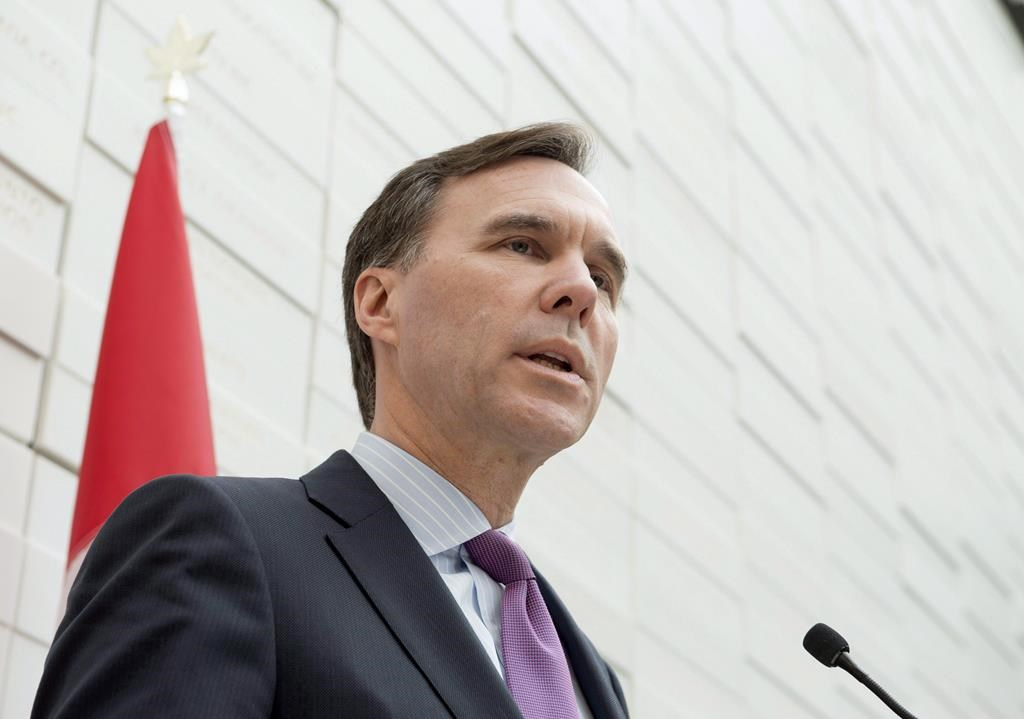
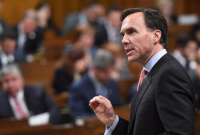

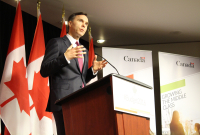

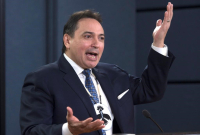
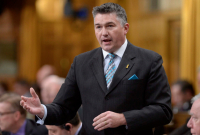
Comments